Police Have No Duty to Protect You
"Protect and Serve" is just a slogan, not a guarantee.
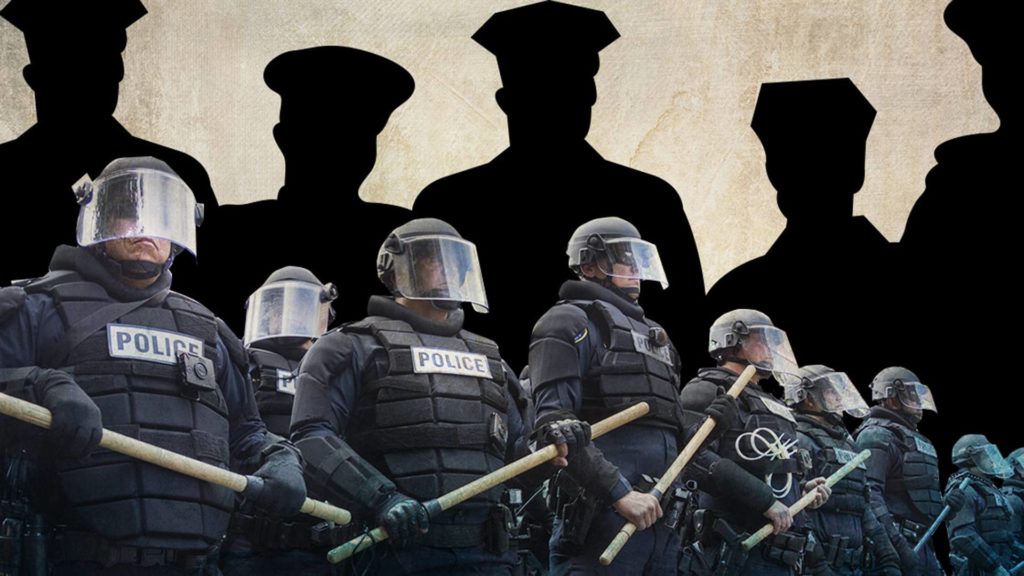
Early in the comments to my post “What Are Police For If They Won’t Risk Their Lives to Save Children?” Dave Schuler observed,
Police officers are under no legal obligation to protect you, your family, or your property. That’s a misconception. They might; they might not. When they do it’s an act of heroism.
As bizarre as that sounds, he’s right.
In a post from April, Ramenda Cyrus expounds on this idea at The American Prospect:
The questions that get asked in the aftermath are limited: Do police lack the resources to prevent crimes, or did they make tactical or logistical errors that can be fixed with new leadership or more training?
All of these questions are situated in the traditional belief that police are there to proactively prevent and deescalate dangerous situations. The average citizen has been convinced of this imagery of police as heroic and uniquely brave citizens, despite being debunked both by the actions of police forces and the courts themselves.
This is followed by some anecdotes of gross malfeasance by police that resulted in failed lawsuits, the upshot of which is that, unless a citizen is in police custody, police have no obligation to protect them. (And, as we’ve seen, the duty to take care of those who are in police custody is enforced mostly in the breech.)
In a post at the Foundation for Economic Freedom from way back in 2000, Richard W. Stevens explains*,
Underlying all “gun control” ideology is this one belief.” “Private citizens don’t need firearms because the police will protect them from crime.” That belief is both false and dangerous for two reasons.
First, the police cannot and do not protect everyone from crime. Second, the government and the police in most localities owe no legal duty to protect individuals from criminal attack. When it comes to deterring crime and defending against criminals, individuals are ultimately responsible for themselves and their loved ones. Depending solely on police emergency response means relying on the telephone as the only defensive tool. Too often, citizens in trouble dial 911 . . . and die.
[…]
Americans increasingly believe, however, that all they need for protection is a telephone. Dial 911 and the police, fire, and ambulance will come straight to the rescue. It’s faster than the pizza man. Faith in a telephone number and the local cops is so strong that Americans dial 911 over 250,000 times per day.
Yet does dialing 911 actually protect crime victims? Researchers found that less than 5 percent of all calls dispatched to police are made quickly enough for officers to stop a crime or arrest a suspect. The 911 bottom line: “cases in which 911 technology makes a substantial difference in the outcome of criminal events are extraordinarily rare.”
It’s not just that the police cannot protect you. They don’t even have to come when you call. In most states the government and police owe no legal duty to protect individual citizens from criminal attack. The District of Columbia’s highest court spelled out plainly the “fundamental principle that a government and its agents are under no general duty to provide public services, such as police protection, to any particular individual citizen.”
In the especially gruesome landmark case the “no-duty” rule got ugly. Just before dawn on March 16, 1975, two men broke down the back door of a three-story home in Washington, D.C., shared by three women and a child. On the second floor one woman was sexually attacked. Her housemates on the third floor heard her screams and called the police.
The women’s first call to D.C. police got assigned a low priority, so the responding officers arrived at the house, got no answer to their knocks on the door, did a quick check around, and left. When the women frantically called the police a second time, the dispatcher promised help would come—but no officers were even dispatched.
The attackers kidnapped, robbed, raped, and beat all three women over 14 hours. When these women later sued the city and its police for negligently failing to protect them or even to answer their second call, the court held that government had no duty to respond to their call or to protect them. Case dismissed.
The law is similar in most states. A Kansas statute precludes citizens from suing the government or the police for negligently failing to enforce the law or for failing to provide police or fire protection. A California law states that “neither a public entity nor a public employee is liable for failure to establish a police department or otherwise provide police protection service.” As one California appellate court wrote, “police officers have no affirmative statutory duty to do anything.”
The state legislatures and courts protect government entities and police departments from civil liability for failing to provide adequate police protection. Some states invoke the “sovereign immunity” defense, a throwback to the days when the subjects were forbidden to sue the king. Other states have statutes that prevent legal challenges to police “discretionary” functions. Courts preclude lawsuits in those states by holding that answering emergency calls or providing police protection are “discretionary” functions.
Many states evade liability by relying on the ironically named “public duty” doctrine. Like a George Orwell slogan, that doctrine says: police owe a duty to protect the public in general, but not to protect any particular individual.
Let’s ignore the gun control argument for the purposes of this argument. My point here is twofold. First, despite the fact that the police work very hard to give the impression that they’re a Thin Blue Line between us and evildoers, they mostly are not. As Dave notes in his own post about the Uvalde press conference,
1. It should be very clear that the first priority of law enforcement is force protection
2. Don’t expect law enforcement to protect you, your children, or your property. Once a crime has been committed they’ll investigate it, maybe make arrests. As far as protection goes you’re on your own.
Second, while this is far from common knowledge—again, because police work very hard to convey the contrary image—this is one thing where activists on both the Left and the Right very much agree.
While police like to bask in the glow of notions like “To Protect and to Serve” (the longtime motto of the Los Angeles Police Department) it’s no more binding than the US Postal Service’s unofficial mantra “Neither snow nor rain nor heat nor gloom of night stays these couriers from the swift completion of their appointed rounds.”
Is this nuts? I think so. But it’s very hard to demand heroism retrospectively.
_______________
*I’ve stripped the footnote reference indicators in the original from the excerpt.

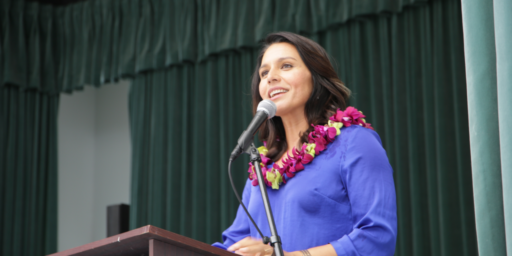
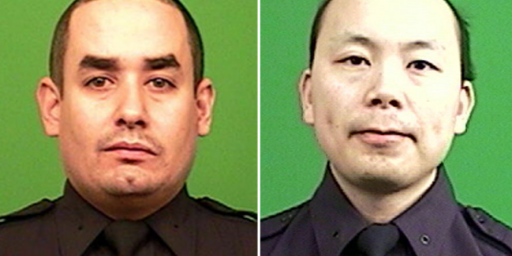
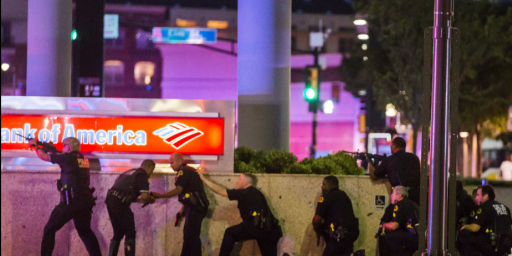
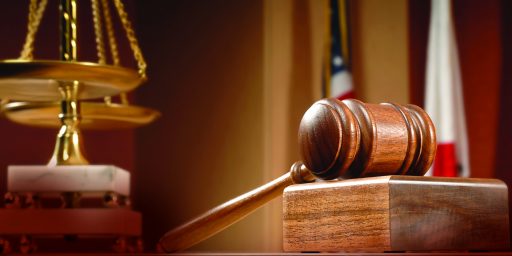
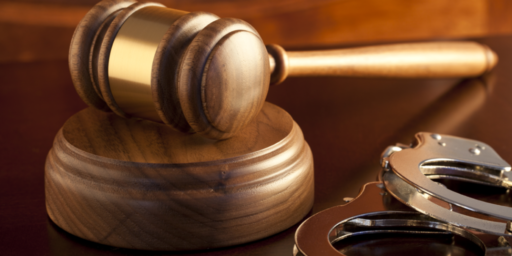
And the MAGA kooks will tell you that this is precisely the reason why we all need to rush out and buy guns: to protect ourselves, since the police won’t.
Just to ensure proper context, I don’t believe that for most people owning a gun makes them safer. I own two long guns, neither of which has been fired in living memory. Those are family heirlooms not weapons.
There is a reason that it’s “Law Enforcement” and not “crime prevention or interruption.” Police are, for a variety reasons optimized to deal with the aftermath of a law being broken (and to some degree code enforcement).
This is of course, not what much of the pro-police media that we are exposed to from birth represents (with the exception of police procedurals that are about the investigation like the Dick Wolf shows… which I hold to have done more to damage the criminal legal system reform movement than any slogan that triggers centrists).
Sure, they might not have a job duty to assist, but you’d think human nature and compassion would be sufficient motivation to get those on site with weapons and training to get in there and help those poor children. That entire police force should be fired.
Like the comedian Neal Brennan said, “I like how on cop cars “To Protect and To Serve” is in quotes like they’re being sarcastic”
@LPNM:
It’s the “serve” part that mystifies me. What are they going to do–bring me a vodka martini?
At the risk of being a broken record, I’ll repeat what I said in the other thread:
As to this,
My union business rep shot and killed a total whack-a-loon in my rep’s bedroom. The man had been stalking his wife for over a year. They had a restraining order against him, one he violated on a # of occasions but could never get a sheriff’s deputy to respond. He also had warrants out for his arrest and they repeatedly called 911 when as they drove by his house on their way home, and they saw that he was at home. Again, nobody ever responded.
And then one early AM (2? 3?) he kicked in the outdoor door of their bedroom, ran in with a rifle and proceeded to shoot my rep in the neck and his wife in the elbow, shoulder, and a 3rd location as well iirc (she went for the asshole’s gun while R went for his).
If the cops had just done the minimum and arrested him on the warrants, he might still be alive, neither R nor his wife would have been shot, and R wouldn’t have had to deal with the death threats from the W-a-L’s family.
SCOTUS agreed with this a few years ago in Castle Rock v. Gonzalez
1) Woman gets restraining order on abusive murderous
2) Husband abducts their three kids
3) She calls police, they shrug
4) Husband murders three kids
5) She sues police and the Court says, 7-2, with Scalia writing, “eh, cops have to exercise discretion sometimes”
A huge amount of what protects law enforcement from consequences has been conjured up by the courts out of whole cloth.
They work very hard to convey the contrary belief, because otherwise their funding would dry up. No small city is going to invest 40% of its municipal budget (as Ulvade has) on a group of public employees who’s only obligations are to write traffic tickets, file paperwork, and drive around in their cruisers.
@Dave Schuler:
When my father died my brother and I had a big argument about who got his two long guns, which had been “our” guns when I was thirteen years old in rural North Dakota. He lost the argument. I have no idea what he did with them.
Yep! As a PR professional I have to commend them on their commitment to this positioning, it has been masterful.
RadioLab did a program about this in 2020 that was very informative, IIRC.
Cops can’t realistically be expected to prevent crime except by deterrence. Policing works because the bad guy has to win every time, the cops only have to beat him once. Crooks are seldom geniuses and they have a lot of chances to screw up. Eventually the cops will get lucky. IIRC the Olympic bomber got caught when a cop literally tripped over him in a parking lot. (All qualified that I’m talking blue collar criminals.)
@gVOR08:
This reminds me of a funny scene I once witnessed: A guy robbed a bank in Harvard Square (no gunplay involved) and ran out straight into the arms of the biggest cop* on the Cambridge Police force. Easiest, neatest arrest in the history of the CPD. Afterward the cop walked into a local coffee shop and the entire place stood up and gave him a round of applause.
*The cop was about 6’7″.
Under the heading of “Devil’s Advocate”.
It seems indicative of something that so many people have lept on the damn the cops train on this incident, one rife with conflicting accounts and with no comments yet from the officer who was in charge at the time, but I’m not sure what. A general hatred of the police has not been a strong movement of late, but clearly a lot of people “have issues”, so to speak.
A legal obligation? What clever BS! Anyone who thinks police refuse to answer to calls to respond needs to provide a cite. A legal obligation to respond exists, but a legal responsibility to protect on police would be on a par with a legal responsibility on a doctor to cure every patient.
“The” police. In the US about 95% of LE is local. The federal LE system, from cops to courts, is positively tiny in terms of per-capita. Local LE varies widely for the nature of the community that employs them and each develops it’s own culture.
Drawing broad conclusions about policing in the US from the actions of the dept. of one podunk town would be like an alien craft zipping past the earth, beaming aboard a puppy dog, and drawing broad conclusions about life on earth.
We should wait for more information about exactly what happened in the incident in question. I am very familiar with the culture of police and in these situations the system is military: People must obey orders 99% of the time, and are so conditioned. The culture is one in which cowardice is not an easy thing to display before one’s peers, so I strongly suspect the issue lies with the guy in charge at the time, and it was just one guy giving the orders, or should’ve been.
I never bought into protect and serve, and I’ve married into a cop family. But even as a short haired redneck child, I was apparently just a DFH.
I really wish things had changed since the mid-70s when I was working night shift at 7-Eleven in what was then only a sorta sketchy part of Seattle. In those days everyone in the store carried. IIRC, the in-house joke was that first responder would be the bikers from the clubhouse around the corner, second responders would be the paramedics, and the police would show up sometime towards the end of the shift after a shooting. I know I had a Sgt admonish me to make sure the entrance wounds were in front, and to make sure we hosed down the blood if we dragged them back into the store.
Still and all, I agree with society’s decision that all y’all are better off if I don’t have a gun.
The LAPD that adopted that motto was pretty explicit that they were serving the white population by protecting them against the Black people who thought they should be able to go to any part of the city and use recreational facilities.
@dazedandconfused:
All you have to do is live in the “ghetto” as defined by the police (poor and/or minority neighborhood). It’s not uncommon for police to just ignore calls from certain areas or to show up hours later.
https://blockclubchicago.org/2021/11/19/west-siders-would-call-911-but-no-officers-would-show-up-after-lawsuit-city-now-must-track-emergency-response-times/
You can spend 10 seconds on google and find dozens upon dozens of cases of cops ignoring calls that they should be responding to.
@dazedandconfused:
All you have to do is live in the “ghetto” as defined by the police. It’s not uncommon for police to just ignore calls from certain areas or to show up hours later.
https://blockclubchicago.org/2021/11/19/west-siders-would-call-911-but-no-officers-would-show-up-after-lawsuit-city-now-must-track-emergency-response-times/
You can spend 10 seconds on google and find dozens upon dozens of cases of cops ignoring calls that they should be responding to.
@dazedandconfused:
Given how much policing has been in the news over the last few years, the amount of investigative journalism that has looked into issues regarding policing and the number of DoJ settlements with local departments for civil rights violations. No one is forming judgements about policing in the US based on the performance of a podunk TX city PD. In truth, no one should be surprised about their performance, it is what we have come to expect, though one hopes for better.
@Matt:
Once again, an isolated condition in one part of one city is writ-large across every cop in the nation. As in this incident, in which a few cops seem to have made mistakes in a chaotic situation…(not that the fact are all in or the person making the decisions has been heard from, or anything) and now ALL cops don’t even try to protect!
@dazedandconfused: You asked for a citation so I spent 5 seconds on google to get you one. Now you’re moving the goal post. You’re entering Drew territory here with your dishonesty. I’m not going to get locked into this endless cycle of me posting a citation and you decrying that it’s only “one part of one city”. I’ve got better things to do with my life.
The information is there for you if you ever decide to stop being delusional.
@dazedandconfused: No one’s saying that all cops don’t protect and serve. Some of them are there to make sure that the paramedics can’t get to George Floyd while he’s being choked out but are, otherwise, solid citizens and credits to the community.
Just like in any other arena of life, when society evaluates, it evaluates against what the worst among you do and averages it across the cohort. Unfair? Meh…
@Matt:
I showed your example to be anecdotal, and everybody was outraged at it, so it’s irrelevant.
I lived in Oakland, the Black Panthers were created in no small part by the Oakland PD not answering calls there in the 60’s (and they learned their lesson -it’s a long story) so it’s not indicative of police in general.
Well, if they’re not going to protect us, why should we have them at all?
@Sleeping Dog:
Look again and the OP title and cited articles.
Per my experience growing up, police were mostly there to scare or beat you into compliance and fear.
Minneapolis 3rd precinct was an us vs. them situation where the preferred solution was institutionalized violence. Mostly against black people.
I was lucky. I was white.
@grumpy realist: Exactly. I’ve never been a “defund” person….until now. We actually have to pay line item taxes for fire, police, and hospital districts, and quite frankly, if this whole “Well, we’re not actually “required” to protect you” thing is their hidden secret, I see no reason to fund them. I could get better “protection” from a local militia. The fire department is required to respond to every call, and the clinics are required to treat people. What the fuck am I paying cops for if protecting children isn’t their utmost priority, ACROSS THE NATION?!
Ok, so back to Uvalde … let’s grant that the officers had no *legal* obligation to do anything. But then why stop parents and other willing adults from doing something?
What a grotesque proposition. In fact, underlying all gun control arguments is this one belief: “Private citizens won’t need firearms if other private citizens don’t have them.”
@dazedandconfused:
Except you didn’t. My citation involved a successful lawsuit of people living in neighborhoods with a population of +100,000. That lawsuit resulted in court orders that changed the policies of the entire police force of a city of 2.7 million people.
The systemic nature of the refusal to respond was such that the courts felt the need to order some accountability.
Police corruption, bias etc are common themes in PDs across the country..
Unfortunately the good cops like to “hold the thin blue line” which prevents needed house cleaning. There’s also a lot of jerks out there who hate on cops for little to no valid reason. So I’m not unsympathetic to them as people and the bullshit their job can entail.
Police protect through deterrence. I did not enjoy being arrested, so I went a different way with my life. The burglar who wants to come to my house and steal my stuff faces the same danger of arrest, and is either deterred or not, but is at least made cautious.
Why don’t we simply pass laws requiring the police to protect? Nothing in any SCOTUS decision would forbid that. And I suspect this would do the job of weeding out a lot of the worst cops. The end result would probably be smaller, less expensive, more effective police.
@dazedandconfused:
In addition to the case that Matt cited, there are also examples like the Furgeson Report (that included numerous accounts of police not responding to community requests) and in cases of other departments that were placed under Federal Consent Decrees for Civil Rights Violations. There’s also the examples enshired within the cases that established no legal obligation (and there are a number of those cases). There are also a number of examples in Alex Vitale’s “The End of Policing.”
Does this happen everywhere? Of course not. But pretending this is isolated or anecdotal (including in cases where a court or federal agencies have made legal findings of said behavior), is akin to sticking one’s fingers inside their ears and shutting one’s eyes to ignore the evidence at hand.
@Matt Bernius:
Yes, there are multiple historical and a few current cases of cops ignoring slums. but the vast majority of the US is not a slum, so the cases ARE isolated and anecdotal, as they are far, far from common (these days).
@dazedandconfused:
I don’t think we’re going to reach an agreement here. I do want to highlight 3 things:
1. Due to the lack of transparency in policing data, it’s hard to say how isolated these issues are. Unfortunately, investigating and proving this is happening takes a lot of work (because much of the data to do this work are not public and in forms that resist analysis). Do I think this is an issue with every agency or every officer, of course not. But I suspect that this may be more common than folks realize. And if the percentage of locals were to drift into even the low double digits, then this is a profound issue (especially given how much money is spent on policing).
2. I think part of (other) Matt and my reaction is your continued use of the word “anecdotal.” Borrowing from Wikipedia, anecdotal evidence is “is a factual claim relying only on personal observation, collected in a casual or non-systematic manner.” The fact that both of us are referring to studies/investigations where there were factual findings made by courts or agencies means that those examples are inherently not anecdotal. They are for all intents and purposes *proven* (i.e. the facts are no longer in dispute).
3. Your continued use of “slums” as a shorthand really isn’t a good look. And accounts of this also can be found happening in rural communities as well that don’t necessarily fit the traditional notions of slums. Unfortunately, places where poor white folks often live (i.e. trailer parks) also have a history of getting slower service from law enforcement as well.
@Matt Bernius:
The studies cites so far refer only to certain places, do they not? That’s why I call them anecdotal. If there are any studies that show broad systemic failure to respond to calls for help to police I am unaware of them…and I suspect so is everybody else.
Do you really believe a significant percentage of police refuse to respond to calls of violent crime in the US? If so, on what is that belief based?
@dazedandconfused:
Ahh got it… the term you are looking for is “non generalizable.”
Different from “anecdotal” which means something completely different from a research perspective.
Someone posted a link to the excellent RadioLab presentation on this, but I didn’t see a clear synopsis of it so I will post it here: You don’t want the police force, in general, to have a duty to protect you. If they did, policing would be a lot more invasive than it is now. That ‘duty to protect” would greatly interfere with how you go about your daily business–that is the reason this principle has been upheld so many times in SCOTUS. The radioLab piece mentions an incident that is almost a carbon copy of the the Uvalde scenario, someone was barricaded with a gunman, police refused to go in out of an instinct for self preservation. Upheld. Think for a minute of all the crazy, dangerous things we do now every day that would be met with police force if they had a “duty to protect” us!
@Ken_L:
Explain please how you purpose to eliminate all firearms from the hands of those who don’t follow laws?
I hear that argument all the time and it’s moronic.
The place you speak of is ” nirvana” , this utopian world where nobody has access to firearms and everyone obeys the laws.
We all sit around singing songs together.
I wish and pray for it every day….but I am also a realistic person. I know that society will never get to that point until we as a species evolve beyond petty differences, like skin color or social economic standing, religious beliefs,etc.
Until then, while I love my fellow man; I’m going to keep my firearms and protect myself and the ones I love.
Even the bible agrees with me.
@Rev.E.Sullivan: A tired argument that pretends the rest of the world doesn’t exist. I don’t self-righteously pretend to “love my fellow man”, but nor do I fear them. Neither I nor anyone else I know here in Australia has ever felt the urge to acquire a gun for self-protection.
@Ken_L:
How is loving my fellow man being self righteous?
I fear no man, however I preapare for the worst and pray for the best.
I have owned firearms my entire adult life ( I am 51) and have NEVER felt the need to use them.
But just like the fire extinguisher I own that has never been used they are there if needed.
I practice with them and enjoy target shooting.
Just because you allowed your government to strip you of your God given right to self defense. Doesn’t mean that the rest of the free world has to follow suit.
Btw I know plenty of folk in Australia who own or have owned firearms for defense and hunting.
Just because your circle of friends doesn’t is not an accurate polling of the entire country.
Sorry but your feelings don’t trump my rights.
@Ken_L:
P.S. We in America are CITIZENS not subjects to the crown.
We don’t bow down to any ruler!
I only kneel when I pray!
@Rev.E.Sullivan: I only kneel when I’m weeding the garden.
I really think you’d be happier somewhere like PJ Media, where vacuous NRA tripe gets upvoted, not mocked.
@Ken_L:
And I think you’re quite happy being a subservient bootlicker to a monarchy that should have ended centuries ago.
I despise the NRA , they’re nothing but a money hungry old boy’s club.
But thanks for assuming that just because I disagree with you, I must fit into a certain mold.
BTW…Why do the laws of my country bother you so much?
Don’t like guns don’t buy one, don’t like the USA don’t come here.
Seems pretty simple to me.